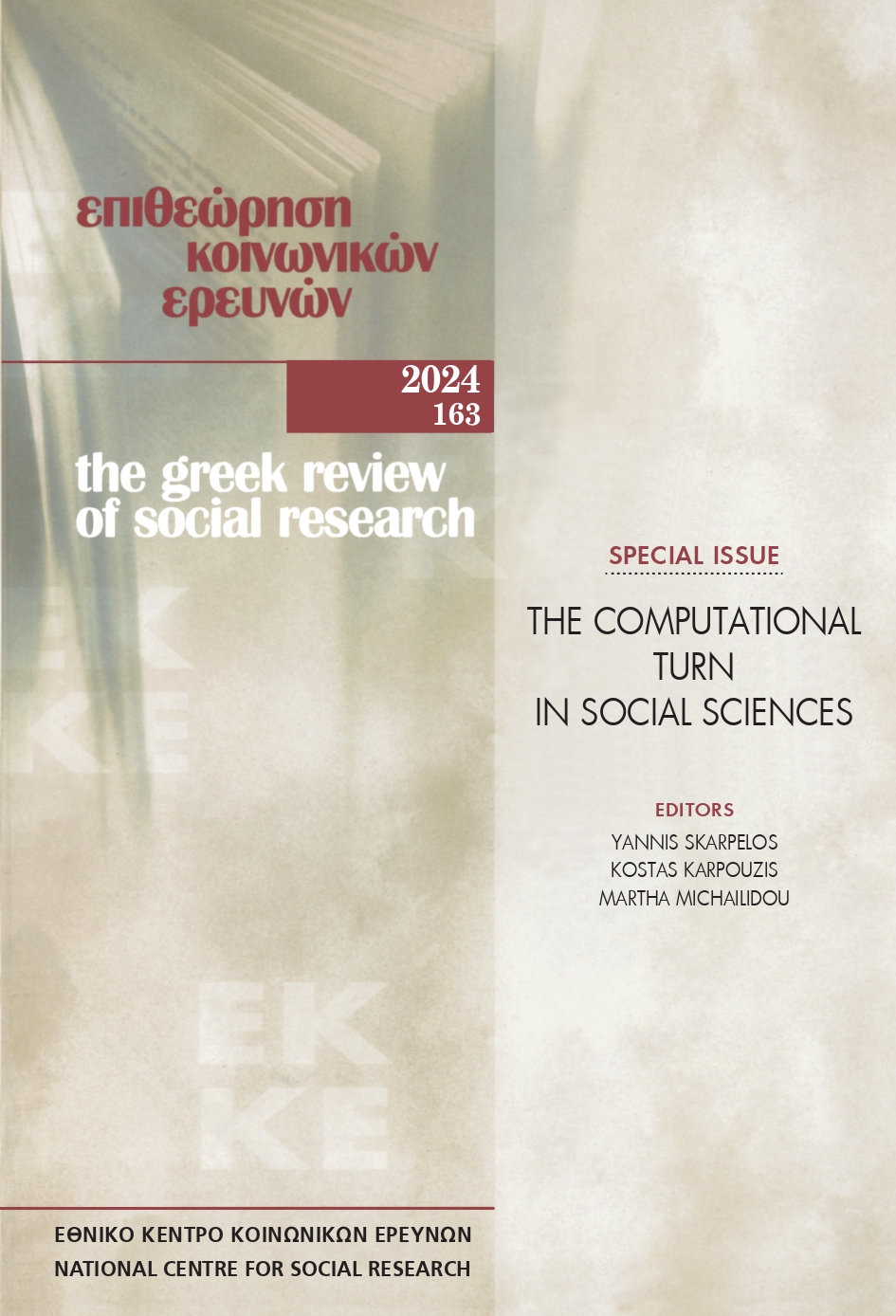Μια θεραπεία χειρότερη από την ασθένεια; Η διαμάχη στο Twitter γύρω από μια ψευδοθεραπεία της COVID-19 από τη Γαλλία

Περίληψη
Το άρθρο αυτό αναλύει τις αλληλεπιδράσεις των χρηστών και τις διαφορετικές ρητορικές που αναπτύχθηκαν στο Twitter σχετικά με τη θεραπεία με υδροξυχλωροκίνη που πρότεινε ο Γάλλος καθηγητής Didier Raoult κατά της Covid-19. Η μελέτη συνδυάζει την ανάλυση δικτύου με μια λεξικομετρική ανάλυση σε ένα σύνολο 1,2 εκατομμυρίων tweets. Μεταξύ των ευρημάτων μας, συμπεραίνουμε ότι διαδικτυακές ομάδες φιλικά προσκείμενες προς τον Donald Trump και τον Jair Bolsonaro συνδέθηκαν με γαλλόφωνες ομάδες υπέρ του Raoult. Μεταξύ των υποστηρικτών του Raoult κάποιοι προπαγάνδισαν αντιεπιστημονικές θεωρίες συνωμοσίας ενώ άλλοι άσκησαν κριτική στην πολιτική οικονομία του φιλελευθερισμού. Τέλος, βρήκαμε επίσης ότι οι κορυφώσεις των αντιδράσεων στο Twitter συνδέθηκαν άμεσα με την κάλυψη της πολεμικής από τα κυρίαρχα ΜΜΕ, πχ. μέσω συνεντεύξεων του Raoult.
Λεπτομέρειες άρθρου
- Πώς να δημιουργήσετε Αναφορές
-
Smyrnaios, N., Tsimpoukis, P., & Papaevangelou, C. (2024). Μια θεραπεία χειρότερη από την ασθένεια; Η διαμάχη στο Twitter γύρω από μια ψευδοθεραπεία της COVID-19 από τη Γαλλία . Επιθεώρηση Κοινωνικών Ερευνών, 163, 11–36. https://doi.org/10.12681/grsr.38490
- Ενότητα
- Άρθρα

Αυτή η εργασία είναι αδειοδοτημένη υπό το CC Αναφορά Δημιουργού – Μη Εμπορική Χρήση 4.0.
Οι συγγραφείς των άρθρων που δημοσιεύονται στην Επιθεώρηση Κοινωνικών Ερευνών διατηρούν τα δικαιώματα πνευματικής ιδιοκτησίας επί των άρθρων τους, δίνοντας στο περιοδικό το δικαίωμα της πρώτης δημοσίευσης. Άρθρα που δημοσιεύονται στην Επιθεώρηση Κοινωνικών Ερευνών διατίθενται με άδεια Creative Commons 4.0 και σύμφωνα με την άδεια μπορούν να χρησιμοποιούνται ελεύθερα, με αναφορά στο/στη συγγραφέα και στην πρώτη δημοσίευση για μη κερδοσκοπικούς σκοπούς.
Το Εθνικό Κέντρο Κοινωνικών Ερευνών διατηρεί το δικαίωμα να δημοσιεύει, να αναπαραγάγει, να παρουσιάζει στο κοινό, να διανέμει και χρησιμοποιεί άρθρα που δημοσιεύονται στην Επιθεώρηση Κοινωνικών Ερευνών σε οποιοδήποτε μέσο και μορφή είτε μεμονωμένα είτε ως μέρη συλλογικών έργων, για όλο τον χρόνο διάρκειας προστασίας της πνευματικής ιδιοκτησίας και για όλες τις χώρες του κόσμου. Αυτό περιλαμβάνει ενδεικτικά και όχι αποκλειστικά το δικαίωμα δημοσίευσης των άρθρων σε τεύχη της Επιθεώρησης Κοινωνικών Ερευνών, αναπαραγωγής και διανομής μεμονωμένων αντιγράφων των άρθρων, αναπαραγωγής ολόκληρων των άρθρων σε άλλη έκδοση του Εθνικού Κέντρου Κοινωνικών Ερευνών, καθώς και αναπαραγωγής και διανομής των άρθρων ή περίληψης αυτών με χρήση πληροφορικού συστήματος αποθετηρίου.


